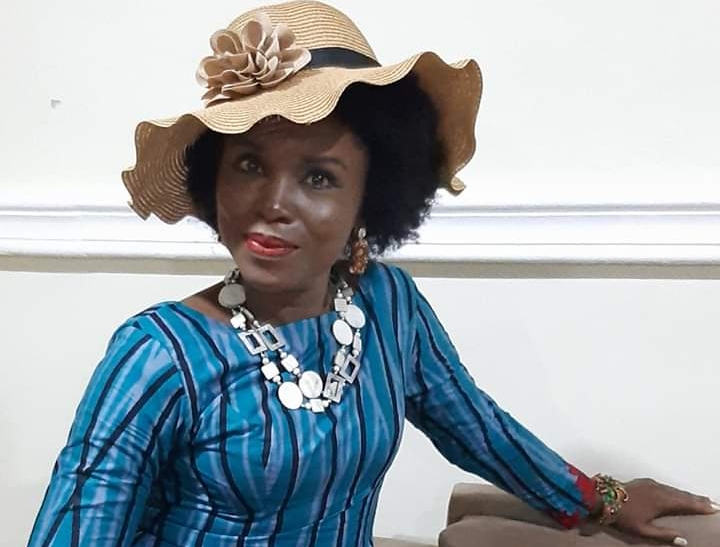News
Journalist Urges Delta Govt To Upgrade Abandoned Juvenile Centre And Remand Homes
With the rise of child abuse, domestic violence and sexualisation of children documented on a daily and weekly basis in Delta State and Nigeria, governors of Nigeria are being asked to take immediate action to renovate and build juvenile centres and Government-PPP run Safe Shelters for victims, especially children and teens who are victims of sexual gender based violence and domestic violence.
This call was made by the multi award winning broadcaster and internationally recognized Investigative Journalist, Ejiro Umukoro, who called for a Public Vote on this issue when she spoke extensively at the recent National Seadogs Association Vito Corsica Virtual Event in Asaba as Guest Speaker, unveiling the shocking statistics of abuse in Delta State and Nigeria from her investigative series titled Broken Boys and Girls – Trapped In COVID-19 Lockdown published by the Premium Times, The Guardian and amplified by the Pulitzer Centre in The USA.
Umukoro spoke on the topic: Child Rights – The House-Help as a Metaphor of Abuse to Highlight Critical Gaps in the Orphanages, Private Shelters, and Remand Homes currently run in Delta State and Nigeria.
Using pictures and stories of the horrors ‘houseboys’ and ‘housegirls’ in Nigeria go through, she highlights that the ‘househelp’ is the most dehumanized person in Nigeria with no protection and defense.
During her speech, the discovery of the absence of the shelters in 16 states of Nigeria by the National Agency for the Prohibition of Trafficking in Persons, NAPTIP was a disheartening revelation to many.
She remarked that the Director General of NAPTIP, Julie Okah-Donli Esq, in an interview stated that the national body in charge of protecting and providing social shelters for victims only have 338 shelters in only 10 states across Nigeria. The remaining 16 states where reports of abuse and human trafficking exists in Nigeria lack such shelters. At present, NAPTIP shelters are overwhelmed. And private-owned shelters since the lockdown have been worst hit with lack of funds, support and ease of modalities to handle the overwhelming number of abused victims.
Present at the virtual session were the Delta State’s DG on Orientation, Eugene Azuka Uzum Esq, Executive Assistant to Delta State Governor on Special Duties/Focal Person NSIIP, Bridget Anyafulu Esq, Director Civil Service Unit, Delta State Ministry of Justice, Moses Onoriode Agewere Esq, and Journalist/Convener OKENITE Foundation for Special Needs Children, Hajia Rafatu Salami.
The discussants agreed on the need for more stringent laws and monitoring of orphanages in Delta State and Nigeria as evidence of abandonments, maltreatments, abuses had been documented against orphanages and homes.
According to Ejiro Umukoro’s investigative report, in 2020, Nigeria’s estimated population increased to 206,139,587. Of this number 46% of this population are children – that is the equivalent of 94 million Nigerian children. Of this number, over nine million children under the age of eighteen are exposed to sexual violence every year from adults every year. More than 23 million girls are victims of early marriage. Nigeria has the largest number of child brides in Africa – Dr. Kemi Da-Silver Ibru, Nigeria records 10,000 daily reports on violence against girls and women (VAGW) incidences such as rape, sexual assault, and human trafficking among girls and women across Nigeria.
The Violence Against Children Survey (2014), the first of its kind in West Africa conducted by the National Population Commission and UNICEF revealed that 1 out of every 3 Nigerian girls experiences sexual abuse before she turns eighteen; while 1 in 10 boys in Nigeria experiences sexual violence before they turn eighteen. It is estimated that the figures may be closer to 1 in 6 boys. Two-thirds of these children who face violence and abuse never speak out, and only 4 out of 100 received any form of support.
Sadly, more than 70% of these children experience sexual violence not once, but repeatedly, often over a period of days, weeks, months, and sometimes years and often multiple types of violent abuse. The study also revealed that the cumulative loss of earnings as a result of productivity losses across different types of violence against children in Nigeria was 967 billion Naira (US $6.1 billion) accounting for 1.07 percent of Nigeria’s GDP.
Despite The Children and Young Persons Act, the juvenile justice system in Nigeria exposes children to horrendous abuse, extreme violence, and maltreatment while in police custody and remand homes according to a report by Prof. Isabella Okagbue highlighted in Ejiro Umukoro’s investigative report.
Although Delta State has domesticated the Child Right’s Law, Patricia Gbemudu, Chairman, National Association of Women Journalists, NAWOJ, Delta State Chapter says “the Child Rights Committee needs to respond more quickly to cases, follow-up on cases reported and have more visibility across the state, as the committee is relatively not popular among many Deltans and residents of Delta”.
Recommendations and Solutions according to the Child Rights Act is against the law for anyone to refer to any child or adult as ‘househelp’. Properly addressing helpers by their names remove the stigma and pejorative now attached to the term.



























